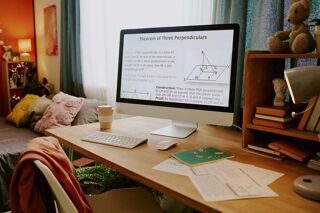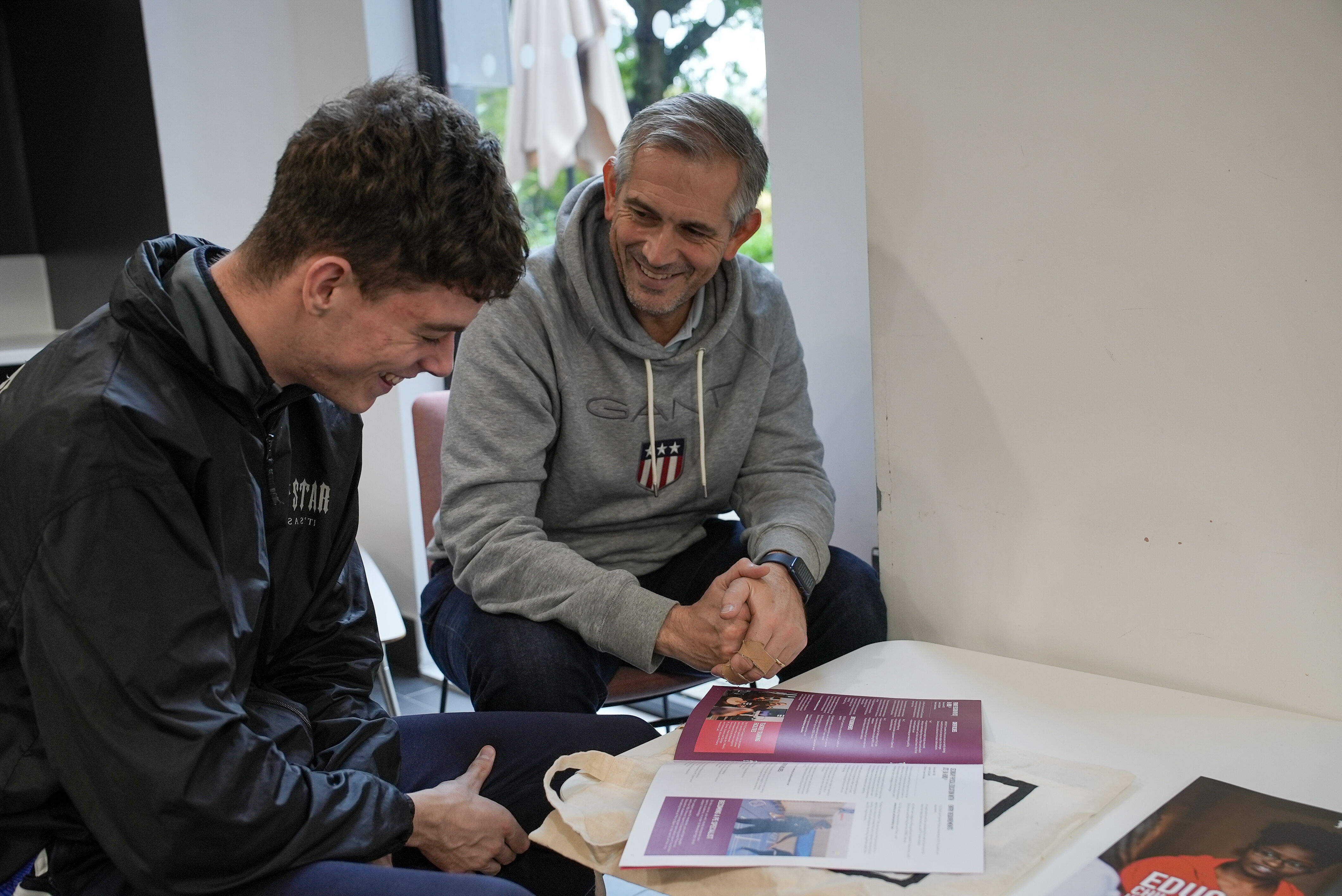Exam season isn’t just a challenge for students, it can affect the whole household. If your child is preparing for important exams, setting up the right study environment at home can help them stay focused, motivated, and stress-free.
Here are five practical ways to make your home a supportive space for revision.
1. Create a dedicated study space
A well-organised study area can make a big difference in how effectively your child revises. Even if you don’t have a separate room for them to study in, there are still ways to set up a distraction-free workspace.
How to make the most of their study space:
- Choose a quiet spot away from noisy areas like the TV or kitchen during meal times.
- Use good lighting; natural light is best, but a desk lamp with a soft, warm light can help in the evenings.
- Provide a chair with good back support to avoid back or neck strain during long study sessions.
- Keep it clutter-free with storage boxes or shelves for books, notes, and stationery.
If space is limited, consider using noise-cancelling headphones or letting your child study at the kitchen table during quiet hours.
2. Stock up on revision resources
Having the right tools can make revision sessions smoother and more productive. Ask your child what they need and help them prepare in advance.
3. Set a family-friendly study routine
A consistent daily routine can help your child balance revision with rest and avoid last-minute cramming.
- Plan study sessions at the same time each day to create a habit.
- Set meal times consistently so they don’t skip food due to stress.
- Encourage active breaks, a quick walk, stretching, or light exercise can boost concentration.
- Support their sleep schedule by limiting screen time before bed.
If possible, try to minimise household disruptions during key revision times, like keeping noise levels down or coordinating family activities around their study schedule.
4. Reduce distractions for better focus
Staying focused during revision can be tough, especially with phones, TV, and family activities going on.
- Encourage “silent study” periods at home: this can help younger siblings understand when quiet time is needed.
- Suggest using ‘Do Not Disturb’ or Airplane mode on their phone to block notifications, or use an app blocker like Opal or Forest.
- If they need music, recommend focus playlists with instrumental sounds instead of lyrics.
- Keep snacks and drinks nearby so they don’t get distracted by trips to the kitchen.
If they’re struggling to concentrate at home, consider suggesting alternative study spaces, like a library, quiet café, or family member's home.
5. Offer encouragement, not pressure
A positive home atmosphere can make a huge difference in keeping stress levels low. While it’s natural to want your child to do well, try to avoid adding too much pressure.
- Acknowledge their hard work, not just results: say, “I can see you’re putting in a lot of effort” rather than focusing on grades.
- Be flexible with house rules: if they’re revising hard, consider easing up on chores.
- Remind them to take breaks and relax: overworking can be just as harmful as procrastination.
- Keep an open conversation: ask how they’re feeling and listen without judgment.
Let them know that while exams are important, their well-being and health matter too. If they’re feeling overwhelmed, a walk, a change of scenery, or a simple chat can help them reset.
Final thoughts
Supporting your child through exam season doesn’t mean you have to be their teacher, but creating a calm, structured home environment can help them focus, stay motivated, and manage stress better.
By making small adjustments, like setting up a quiet workspace, reducing distractions, and encouraging a healthy routine, you can create a home setup that supports both their success and well-being.







